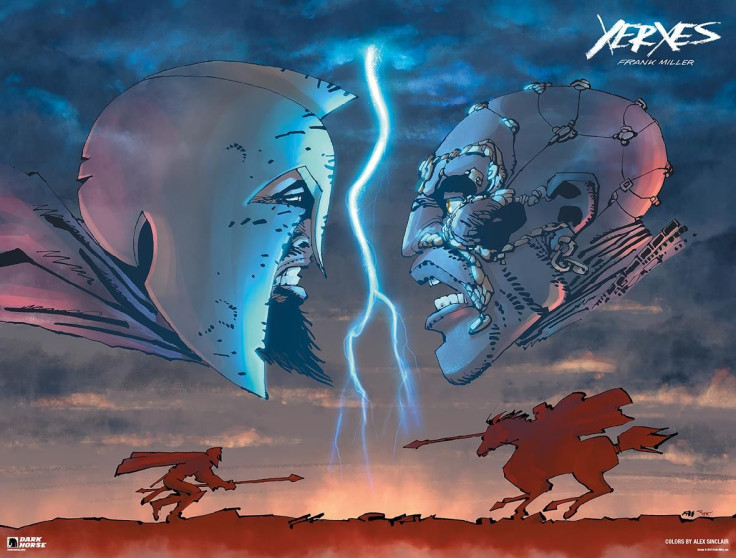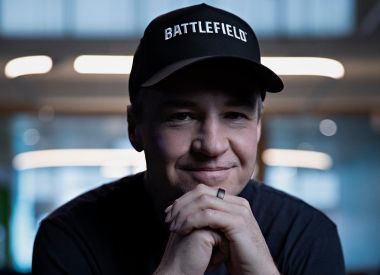Frank Miller is a legend: a comic book writer and inker, novelist, film director, screenwriter and producer. He’s the man behind legends such as Daredevil: Born Again, The Dark Knight Returns, Sin City and 300 , the recipient of every major comic book industry award and a member of the Will Eisner Award Hall of Fame. His next project, Xerxes , has been pushed as a sequel to 300 in the press, but Miller considers it more of a “surrounding story.”
“See, Xerxes was a conqueror on the order of Genghis Khan, so it's the story of him from when he ascends to power, to his entire reign, and the battle of the 300 is really a blip in the radar. Even the greats didn't consider Thermopylae, really. It's a speed bump, but it led to eventually the surrender of Alexander and the Greeks. The story of Xerxes is going to encompass all of that,” said Miller when we spoke to him at New York Comic Con.
“Xerxes rose to power in fifth-century-B.C. Persia and became known as “The King of Kings,” eventually raising and leading a massive army intent on ruthlessly destroying the hated Greeks who killed his father. Xerxes seeks nothing less than to become a god himself—and achieves his wish,” explains publisher Dark Horse, in a blog post.
Miller’s infectious enthusiasm for his work, along with his hardboiled sensibilities and international influences, are some of the factors that have made him such an enduring force. And if he could go back?
“Well you can only make a fool of yourself doing that,” said Miller. If I were to start over, being the person I am, I wouldn't be very good.”
Miller’s passion for creating characters and worlds is evident when he discusses Sin City , the movie based on his comics which he co-directed with Robert Rodriguez. “He put together the entire package and he trained me, took me to school through the whole thing. It was amazing,” said Miller. “Mostly I was learning the differences between comic books and movies, because I came in conceited, cocky, being the star student in comics to all of a sudden learning how movies are put together.”
A critical difference between movies and comics is how an actor embodies their role. Miller was struck by how much an actor like Bruce Willis could bring to a line, simply by changing their manner of speaking. “He brings such an art to it. He could make anything work. When you deliver a line very, very well like him, I realized it was a better line waiting, because he's so versatile, there's so much passion there,” said Miller.
Miller also pointed to a short story starring Marley Shelton. “Of course, in the story we find out that a guy comes up and talks to her, and kisses her and shoots her and she dies, and his voiceover was that she hired him to kill her, so Marley came over to me and said, ‘I got the scene, why'd I hire somebody to kill me?’ And it was a wonderful moment for me, because I did have a whole backstory for that character that nobody knew, but to actually have the character ask me the question was just a supercharged moment.”
As the cultural influence of comics continues to expand, Miller is optimistic about where the industry has come from and where it’s going. “They're losing prejudices, and losing a sense of confinement, and it's amazing how fast that's happened,” he said. “When I first came in, it was only about men in tights, and so many things have changed.
“One has been two new generations of artists coming along. The other has been the publishers have become much more open to the comics. Distribution's gotten better so more people are seeing them. We used to go to these shows and it would take 20 minutes to find a female face. Everything has been for the better. There's no point in pointing out minor trends that seem to be negative because they're come-and-go. But everything has all gotten stronger and better. Also, very important, it's gotten more international.”
Miller sees that international diversity is a major strength, not only in his own work, but for the comics world at large. “We're in NYC -- as much of a melting pot as you can find on earth. And we're in a hall that's filled with people and comic books from every corner of the earth. It's wonderful what's happening,” he said.


















